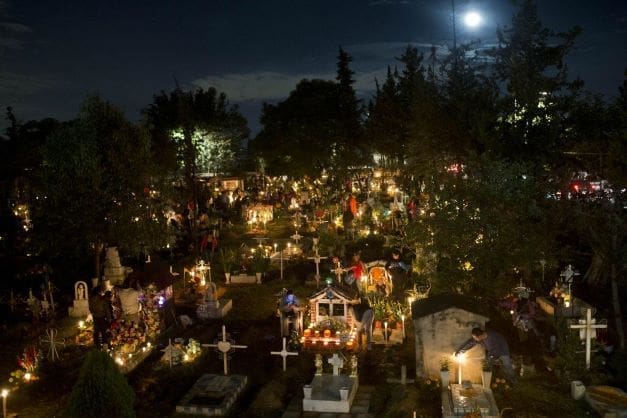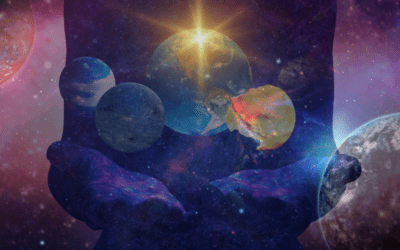As October leads us towards celebrations of Halloween, Day of the Dead (Dia de Los Muertos), and other cultural festivals around the globe, often depicting images of death, some consider it morbid and or fear it as well as misunderstand how other cultures celebrate it. True to much of the human experience, we fear things of the unknown, and death can be one of them. In some cultures, the fear of death makes this transition of Life passing more difficult. Our guest blogger this month and part of our PureEsperanza Community, David Berner, wrote this piece that really brings a unique perspective to this change in Life. David’s contemplative style of writing lends much to this subject and we believe that it will broaden our views of death. With David’s permission, we are thankful to bring it to you in hopes that the transitions you face in your Life come with more peace.
Writer Chuck Klosterman’s 2005 book, Killing Yourself to Live, about his cross-country road trip to visit the death sites of rock stars is an ode to the creative life, the passing of greatness, and the messed-up fatalistic emotions of every one of us of who keeps on living. The book is about dead people but it’s also about Chuck, and about all of us. It was the first modern book I remember reading in which the running theme of the entire memoir was dead people.
I loved it.
Many people did.
What is our fascination with death? We find it strangely intriguing. Look at TV. Dramas about murders, crime, killings, sickness, disease, and addiction that lead to death. Then there are those murder mystery novels that sell like the old candy cigarettes I used to buy at the corner store. Again, a symbol of death. True crime podcasts are the hottest thing going. We love stories about the dead.
What the hell is wrong with us?
At the age of 65, I am closer to my death than my brith. Far closer. That’s not fatalistic, that’s reality. “Death,” my mother used to say, “is a part of life.” Still, it can be a daunting thing to consider. And I have thought about it more often lately than I have in some time. There’s nothing hiding in the shadows or lingering in my near future that signals pending death, still, there it is. Not sure why death is on the mind other than my increasing age. Maybe it was the recent word of the death of my writing mentor. The inevitability of it has been right in front of me.
Death is the greatest of the unknowns. Our heart stops, the brain dies, the blood stops flowing. All those functions of physical life come to an end. But the soul? There’s the debate of every spiritual thought, every religious order, every living being in the world. What is death like? Where do we go, if we go anywhere? What happens to all that energy?
A few years ago, I appeared at a literary fair in Manhattan. I had most of one day to myself before I was scheduled to speak and sign copies of my memoir: The Consequence of Stars, which had just been released. The book is about the concept of home, what it means to all of us, why it’s important. But the book also focuses to some extent on death—the death of my father, my sister, my grandmother, even my own. Death can’t be avoided in a story about life. And it could not be avoided on my New York trip, sending me off on a mini pilgrimage.
The Hotel Chelsea was under major renovations when I arrived outside of it in the mid-afternoon. But I could still peek inside between the boarded-up entranceway to see the shadows of workers and hear the echo of hammers on nails. The Chelsea, as many know is the most famous artists’ hotel in New York and maybe the world. The list of writer, musicians, painters, and poets who lived or spent some time there is endless. However, the most infamous death at the Chelsea was that of Nancy Spungen, the girlfriend of notorious rocker Sid Vicious of the Sex Pistols. He was accused of stabbing her during a drug-fueled party.
But that was not why I was there. I came for Dylan Thomas.
In 1953 after a night of drinking, Thomas returned to the Chelsea where he had been staying and in a matter of hours he found himself breathless. He fell into a coma and died at St. Vincent’s Hospital. There’s been a lot of speculation about what actually killed him. Pneumonia may have played a part. But the drinking, and Thomas’ own crazy claim that he had knocked back eighteen whiskeys at the White Horse Tavern undoubtedly played some part. Despite the uncertainties surrounding his death, it was undoubtedly true that he was at the Chelsea in the last hours of his life.
After the Chelsea, I took at cab to the White Horse Tavern and sat at the bar alone.
“I guess I have to have a whiskey, right?” I said to the bartender.
“Just not eighteen of them,” he said.
I told him why I had come that day, but I think he already knew. I had that look. The bartender said he had been working there for a few weeks but had already served dozens of people who had come for the same reason—to sit where the great poet had sat when he began the slippery slope to his demise.
On the wall to my left was a large portrait painted from a photograph of Thomas at his favorite spot along the White Horse bar.
“He’s standing just about where I am now,” I said, looking at the portrait and Dylan’s unwavering eyes.
The bartender wiped the bar’s surface and turned for a moment to the portrait. After a pause, he said, “Dead Poet’s Society.”
Our fascination with death even had a movie. Those damn poets—Plath, Shelley, Keats, Rimbaud.
“You saw it, right?” he continued.
I nodded.
“The dead poets live on here,” the bartender said, pointing to the portrait. “He certainly does.”
The White Horse Tavern bartender had the answer tucked in the pocket of his white apron. It’s not death that matters, but what is beyond death. What we leave behind. Dylan Thomas left much behind for us—impactful words, joy, beauty, and depth in living. Most of us don’t like talking about the end. But ignoring it is not the answer. It won’t stop it from happening. The mortality rate will always be 100%. But if we consider what can come after death, what we can leave for others—no matter what we believe spiritually—then death might appear less daunting and even more fascinating. Maybe the meaning of life is, at least partially, to leave a piece of our spirit behind, something wonderful, something meaningful, something unforgettable. something eternal.
We are all dying. From the moment we take our first breath, we move toward the grave. The difference between those who dread that thought and those who see opportunity in life is the chance to make a stand, leave a mark before the inevitable.
Thinking of this now, I’d love to return to the White Horse, lift a whiskey to Dylan, and recite a line or two from one of his poems about death. Not the one about his father, but the other one, the one that reminds us that death has no control over man. It is not the end, but rather the beginning of what solidifies the life that came before. Death allows the spirit to live on.
It is the only way it can.
“And death shall have no dominion.
Dead men naked they shall be one
With the man in the wind and the west moon . . .”
—Dylan Thomas, “Death Shall Have No Dominion”





